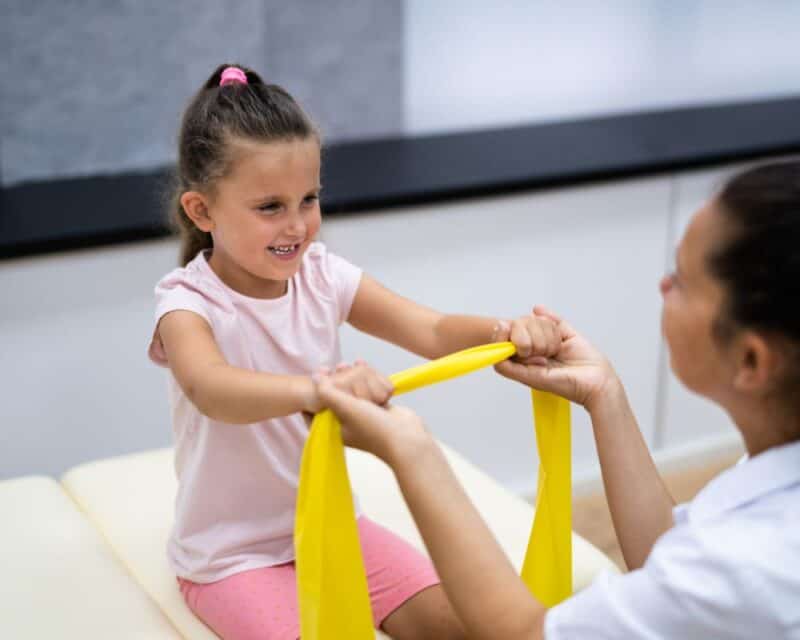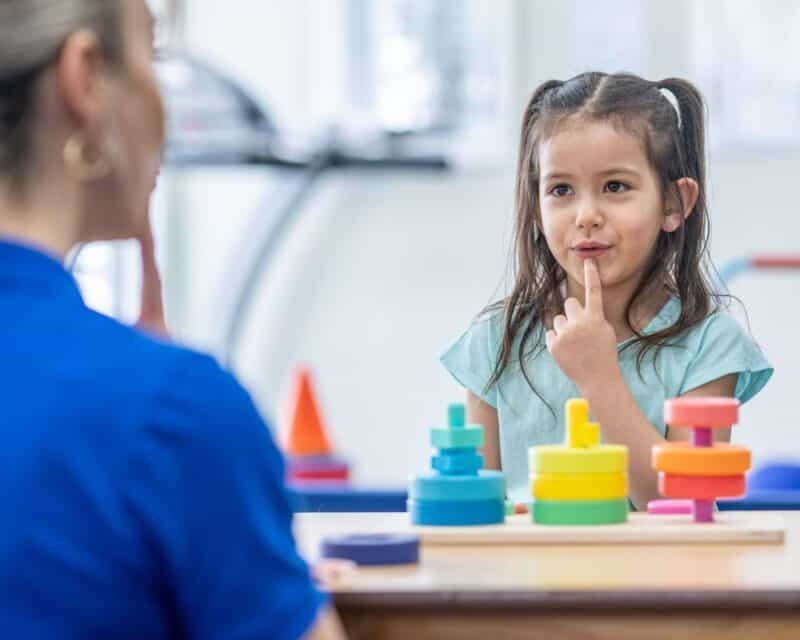As children grow, they reach important milestones and learn new things. But sometimes, they face challenges that need help right away. For example, a child experiencing difficulty with speech and language development may receive speech therapy to improve their communication skills. Similarly, a child with motor delays may participate in physical therapy sessions to enhance their movement and coordination. By intervening early and providing targeted support, pediatric therapists help children overcome challenges, build essential skills, and reach their full potential. That’s where early intervention in pediatric therapy comes in. In this detailed blog, we’ll look at how getting help early can make a big difference in a child’s development.
Recognizing Developmental Red Flags

The foundation of early intervention is being very alert and recognizing any developmental delays or deviations from regular milestones. The process is greatly aided by actively observing children’s behaviors, interactions, and developmental progress by parents, caregivers, educators, and healthcare providers. Developing physical skills, language, social relationships, and cognitive ability are some areas where concerns may emerge. According to Marshall Pediatric Therapy, a leading Pediatric Therapy Services Central KY, “When families quickly recognize these warning signs and seek expert help, they may begin the evaluation process that will lead to the best solutions for their kid.”
Taking Advantage of the Limited Time Available
During the formative years of a child’s life, the brain is incredibly malleable and receptive to its surroundings, a phenomenon known as neuroplasticity. This crucial window of opportunity highlights the need to intervene early on to take advantage of the brain’s innate potential for growth and development. The formation and refinement of brain circuits and pathways occur throughout these formative years, and research shows that acting at this time may have a significant impact. During this crucial time, pediatric therapists have the opportunity to have a lasting effect on children’s learning, behavior, and health by offering individualized assistance and stimulation.
Learning to Communicate Effectively
People’s ability to connect and express themselves via language is foundational to their ability to thrive in social situations, the classroom, and their emotional lives. However, other kids could have trouble communicating since they’re still developing their speech and language. Interventions in pediatric treatment aim to tackle these communication issues from several angles. With families, speech-language pathologists evaluate children’s communication skills, pinpoint problem areas, and provide individualized, evidence-based treatments to help each child thrive.
Fostering Motor Development

A child’s physical development, autonomy, and general health are greatly impacted by their motor development. Throughout their formative years, children achieve remarkable motor milestones, from developing their ability to crawl and walk to honing their fine motor skills, such as gripping and writing. On the other hand, not all kids reach these milestones on time, which might affect their motor skills, coordination, and overall functional capacity. Physical therapy and other forms of pediatric treatment aim to help children overcome these motor difficulties to realize their full potential.
Fostering Cognitive Development
A child’s cognitive development forms their potential for learning, thinking, and intellectual growth by acquiring information, comprehension, and problem-solving skills. From the time they are infants to young children, children use their brains in a variety of ways, from discovering the world around them and interacting with things to solving puzzles and gaining knowledge. On the other hand, some kids could have trouble paying attention, remembering things, solving problems, or doing well in school because of delays or issues with their cognitive development. Pediatric therapy treatments aim to help children overcome these mental problems by promoting cognitive development and providing focused assistance.
Take Things Early
It is important to intervene early when a child is experiencing developmental delays or impairments to avoid or lessen the long-term effects on a kid’s health and well-being. This will help reduce the likelihood of subsequent issues. Academic struggles, social isolation, behavioral problems, and worse quality of life are some of the secondary obstacles that children may face if early assistance is not provided. Pediatric therapy treatments improve children’s outcomes and general quality of life and reduce these secondary problems by treating underlying developmental difficulties early on.
Engaging Families as Partners
The most successful early intervention programs include therapists, families, carers, and other stakeholders working together in partnership. As their child’s primary caretakers, champions, and providers of love and encouragement, families are pivotal in their growth and development. Pediatric therapists understand the value of including families as active participants in their child’s treatment by providing them with information and tools to help their kids thrive. Together with families, therapists set joint objectives, create individualized intervention plans, and implement measures to encourage skill development and engagement in everyday activities. Therapists may help children thrive by creating a safe, accepting, and encouraging atmosphere by collaborating with families throughout the intervention process.
Improvements in Long-Term Results

Studies show that early intervention positively impacts children’s long-term results in many areas of development. Kids’ social skills, adaptive functioning, academic performance, and quality of life are all enhanced when they get treatments when they need them. Pediatric therapy treatments help children succeed by treating developmental difficulties at an early age, laying the groundwork for future success, and allowing them to realize their full potential. Additionally, families, communities, and society reap the advantages of early intervention, in addition to individual children. Future generations will benefit from a more just, inclusive, and wealthy society if we put money into children’s early education.
